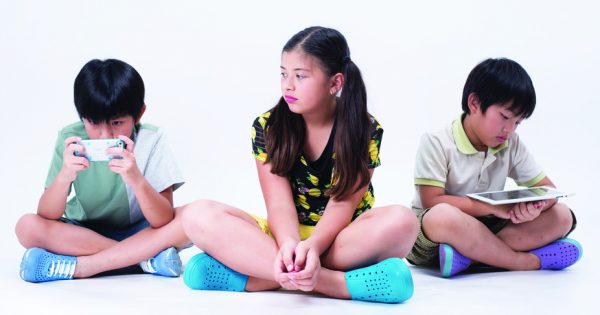What is social networking & what is its true function?
While the terms social media and social networking are commonly used interchangeably, they actually mean two different things. Social media refers to content – things like photos, videos, and tweets – that are uploaded or published by the user. Social networking on the other hand, refers to an engagement process through a platform (websites, apps, etc.) to communicate and connect with others. So when we look at Facebook and Twitter as examples, both allow their users to upload content and engage with people, which is why they are both social media and social networking sites.
How to effectively monitor your child’s use of social networking?
Set simple rules so that your children learn to use social networking sites responsibly. Discuss usage times, internet privileges and, very importantly, the consequences of breaking the rules. It’s best to ensure that the whole family is present during the discussion so that parents and children are in agreement of usage and any consequences of abusing privileges.
Another useful way to monitor your child’s social network usage is by becoming their friend on whatever social network they are on. Most children won’t agree to it, but tell them you promise to not be intrusive. Refrain from commenting, chastising or scolding them publicly on the internet too. Because no one wants to add a parent who will embarrass them online right?
If your children are still young, spend time surfing the internet with them. Parents should be the one teaching and guiding them, just like how you would teach them to ride a bicycle at first. But ultimately, take time to understand their internet world and have daily conversations with them. Because no amount of monitoring can account for what they tell you when you have a good relationship with them.
How to prevent addiction to social networks?
Most people fall into addiction as the result of an imbalanced reality. Which is why it is important for your children to understand how to balance between socialising online and in the real world. Simple things like limiting your child’s usage of their social networking profiles can actually help. But it doesn’t end there, because when you stop them from doing something, you need to introduce something equally as exciting for them. Plan a family activity, suggest reading a book, and get them to pick up new hobbies like learning to play a new instrument, or even ask them to organize an outdoor activity with their friends. This way, they focus on something else, something fun.
If they constantly feel the need to check their Facebook, Twitter or Instagram, talk to them about why they feel that way, because there might be an underlying issue and getting to the root of the problem will help them in the long run.
Cyber Bullying: What is it and how does it affect your child?
Cyber bullying is repeated threats or harassment via digital means. Imagine this, a young girl posts her selfie on Instagram and someone comments on the photo saying she’s “ugly and should not even be born in this world”. Some others follow suit and they start thrashing her account with hate comments. Comments like these can affect your child mentally and emotionally. By reading the comments repeatedly, she might start thinking that she’s not liked by anyone, causing her to lose confidence in herself.
Children who are experiencing cyber-bullying might go through negative behavioural changes—things like not wanting to go to school, agitated emotions whenever they go online, fear of interaction with others and so on. If you notice these changes in your child, it should be a red flag that something’s not right.
How to protect them & what advice can parents give their children?
Most people will say that the way to protect your child from being a victim of cyber-bullying is to educate them about it. Although this might be true to a certain extent, we usually recommend for parents to look at their relationship with their children. Why? Because educating your children will give them head knowledge, but having a good relationship with them shows them that the people who matter the most are the ones who love them for who they are. Having a good relationship also provides children with a platform where they trust and know that they can share their problems with their parents.
If your child is already a victim, they might not open up immediately in fear that you will react angrily at them and potentially revoke their digital privileges. This is when you need to assure them that you are always there for them while giving them ample time and space to talk to you. Ask your child to show you what happened and collect as much evidence so that you can get the appropriate people to handle the situation. It’s not easy being a victim of cyber-bullying, so do support and journey with your child through it. This is not a quick fix. This can be a long process and they will need you to be there for them, and sometimes, as a parent, mentor and friend all at once.
What if your child is the bully?
Revoking your child’s internet privileges sends a strong message, but this is a form of correcting their behaviour and not directing it. What this means is, you need to speak to your child firmly about what they are doing instead of just telling them they’re banned from using the internet. Parents need to remind their children that bullying is a serious issue and their actions can have severe consequences that they might not see. Get them to reflect on their actions, like how would they feel if they were being treated in the same way? If there was a conflict, help them address it by processing those emotions and hurts with them; you’ll find youth and children often struggle in dealing with these issues all on their own. Moving forward, make it clear to your child that he or she needs to be a responsible person online and offline. This will ensure that they do not misuse and abuse their online privileges in the future.
The end game
We believe that family relationships are key in dealing with cyber issues of any kind in today’s world. As we mentor our next generation to be positive and balanced users, ultimately, we ourselves are challenged to behave more responsibly online and offline. Children pick up on the behaviours and attitudes of parents; giving us reason to be consistent and positive role models in their lives. Building strong relationships with our children based on good values, principles and trust develops their character, helping them to make the right choices no matter what they face in the future – social networking included.
And again, as a reminder, it is up to us to define what footprints we leave behind for our children as a legacy. Both digitally and in reality.
About Generasi Gemilang
YAYASAN GENERASI GEMILANG (GG) is a foundation committed to building a strong nation by raising an exemplary next-generation and strengthening families. We believe that ‘Love Transforms Lives’; therefore our work inspires hope in people and empowers them to live life to their fullest potential. These people are children, youth, families, schools, corporations and communities at large. Governed by a Board of Trustees, GG is based in the Klang Valley and conducts services throughout Malaysia. Formerly known as Persatuan Kebajikan Generasi Gemilang Kuala Lumpur dan Selangor, GG was incorporated as a foundation in December 2014.







Comments